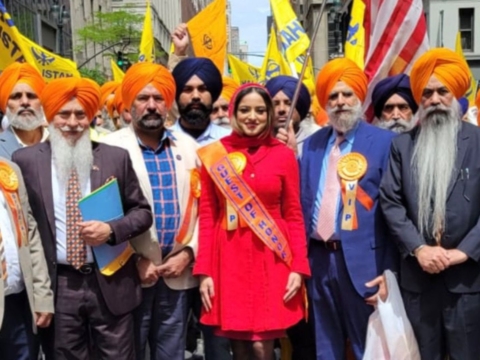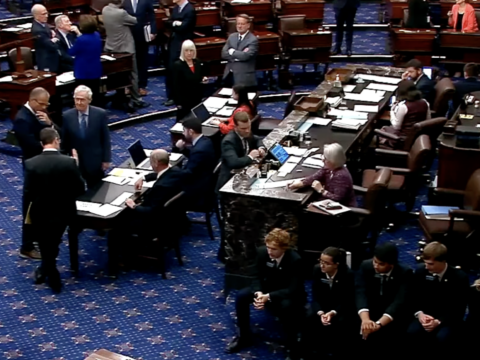WASHINGTON (Diya TV) – In a significant move at the latest White House Asian American, Native Hawaiian, and Pacific Islander (AANHPI) Commission meeting, an immigration reform recommendation won unanimous approval, setting the stage for the Biden Administration to tackle the significant backlog of employment-based immigration green card visas in the United States.
Advocated for by Indian American commissioner Ajay Jain Bhutoria, a stalwart Biden supporter, talented foreign-born workers would benefit from this potential change in policy that has already placed a considerable burden on individuals and their families who have approved I-140 immigrant petitions for alien workers.
The key provision of this proposal calls on the Department of Homeland Security’s US Citizenship and Immigration Services (DHS-USCIS) to issue employment authorization documents (EADs) and travel documents (advance parole) to individuals with approved I-140 employment-based visa petitions in the EB-1, EB-2, and EB-3 categories. This measure would come as a relief to thousands of Indian professionals in the US, who have endured a decade-long wait for green cards, restricting their job opportunities and career growth.
Although the recommendations from the commission are non-binding, they will be presented to President Joe Biden for potential approval. If endorsed, they will be sent to USCIS for implementation, a process expected to take between six to 18 months. If enacted, this reform will provide much-needed stability and security for thousands of Indians who have been waiting in the green card backlog. The EADs and travel documents would remain valid until the final stages of their green card applications, as per Bhutoria’s recommendation.
Commissioner Bhutoria emphasized that the green card backlog is not just a bureaucratic issue; it deprives the United States of highly skilled foreign-born workers, placing undue challenges on individuals who have made significant contributions to the country’s growth. This backlog affects primarily individuals from AAPI countries, including China, the Philippines, and India, with green card processing times stretching from 5 to 20 years and, in some cases, more than 50 years.
“The proposed recommendation offers significant benefits to long-term H-1B visa holders in the United States. It allows workers to switch employers freely, providing relief to both workers and the economy. EADs enable high-skilled immigrants to obtain advance parole, avoiding visa appointment backlogs at US embassies and alleviating family separation issues,” Bhutoria stated.
This recommendation is expected to address workforce shortages in crucial areas, such as healthcare and STEM fields, bridging gaps in rural communities and providing coverage for specialized jobs while ensuring fair and humane treatment in cases of health crises, disabilities, or the death of a spouse on an H-1B visa.



